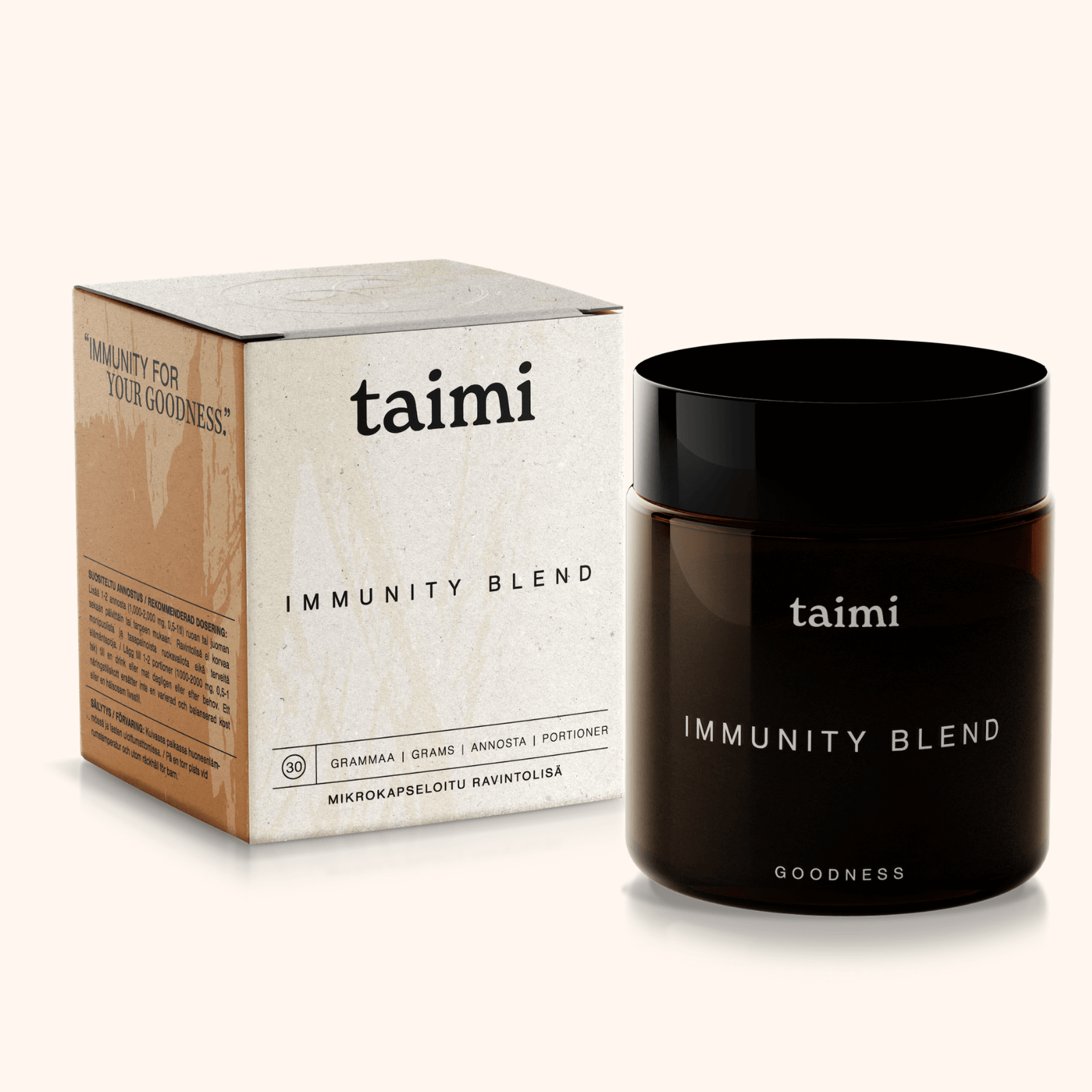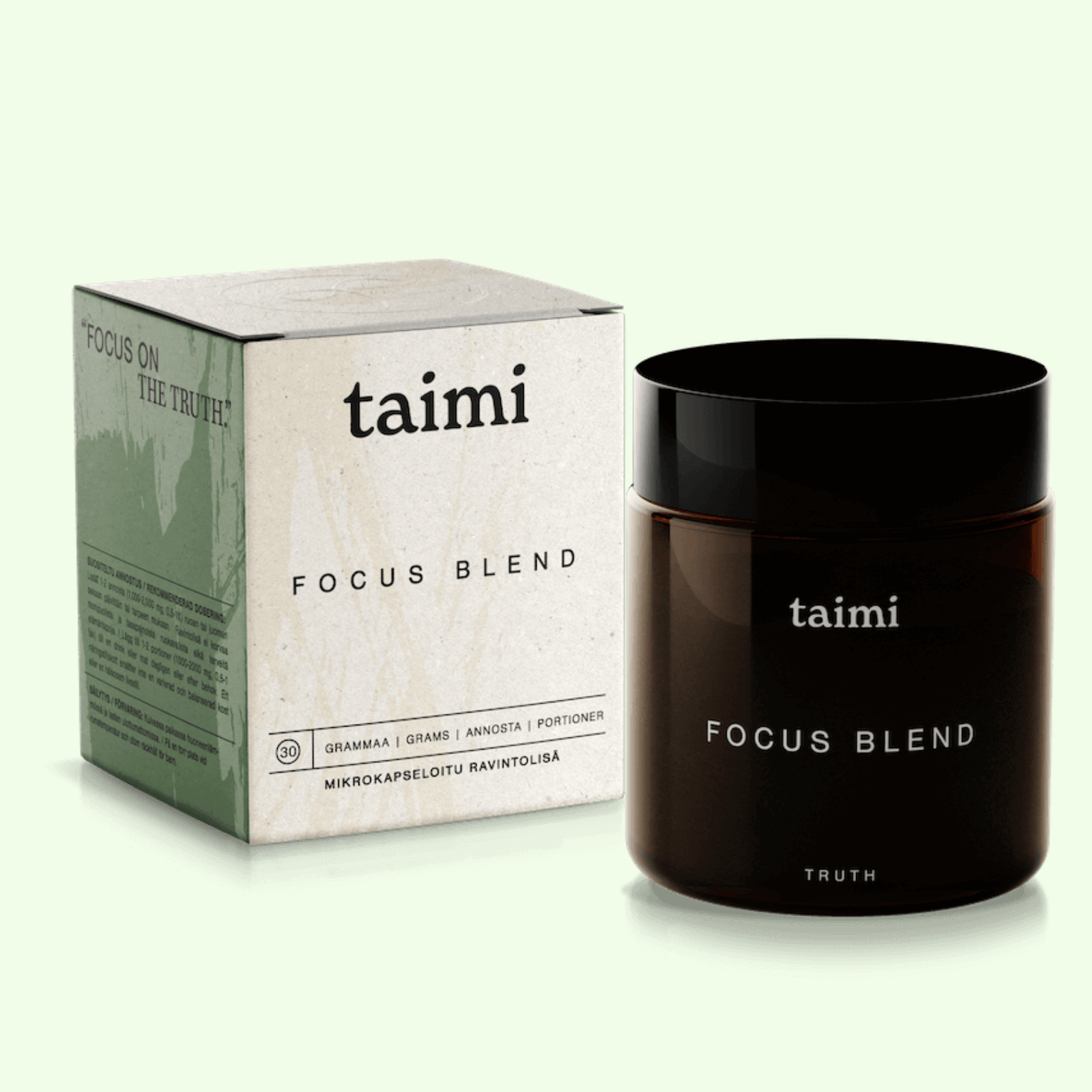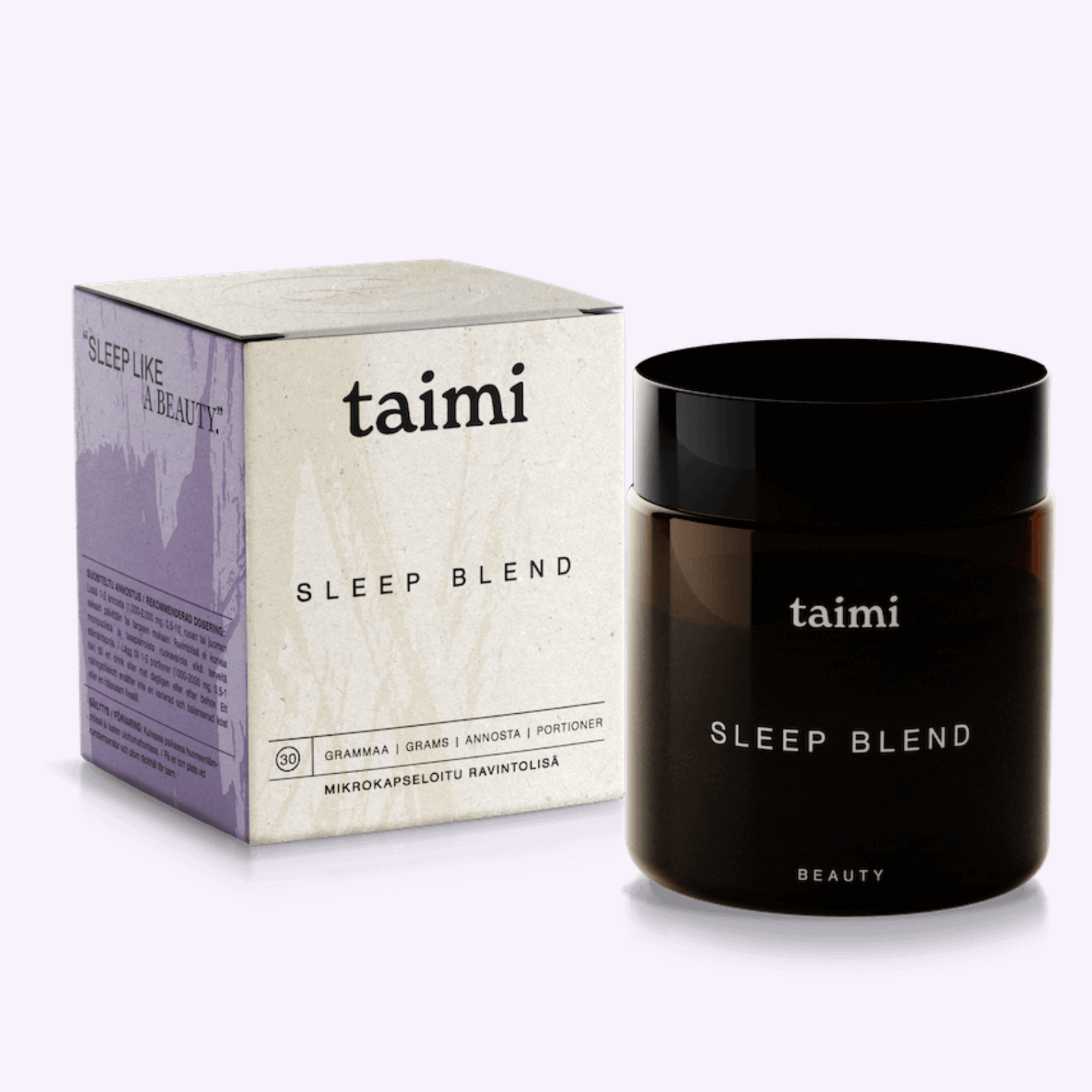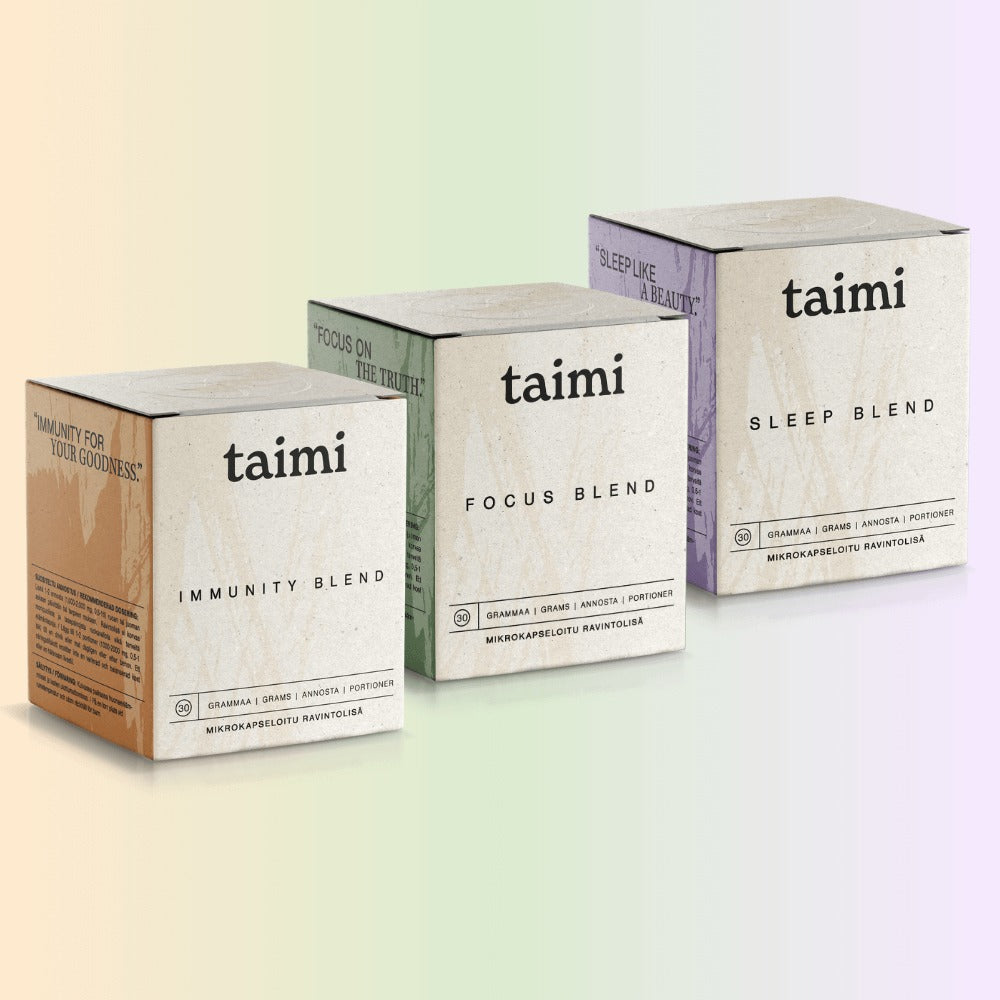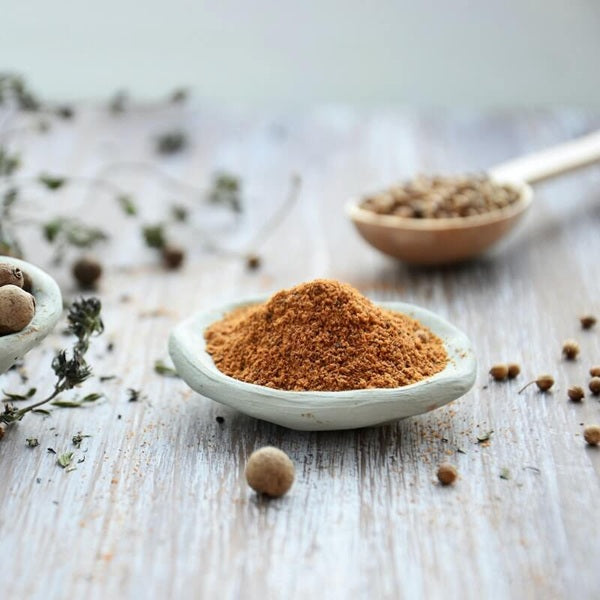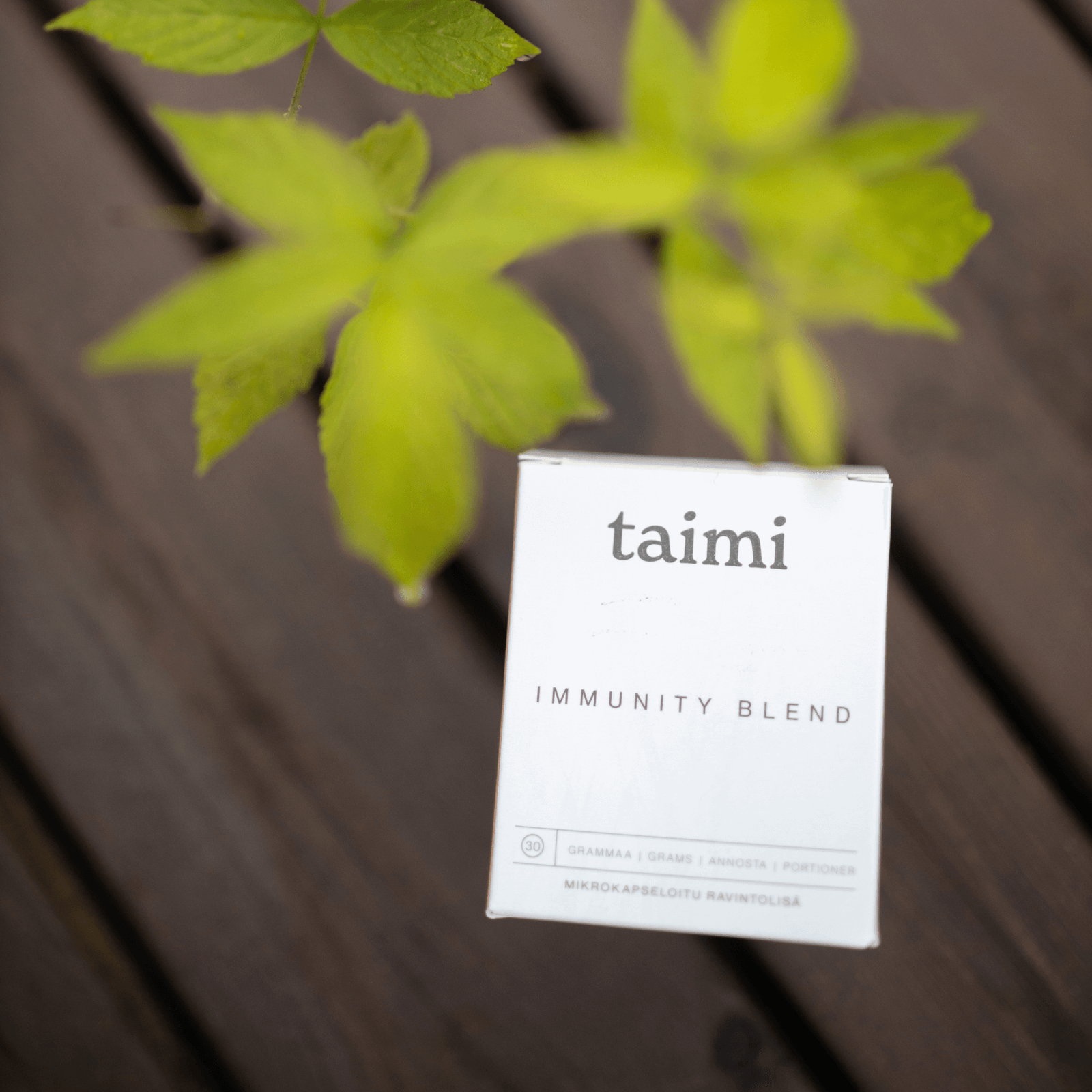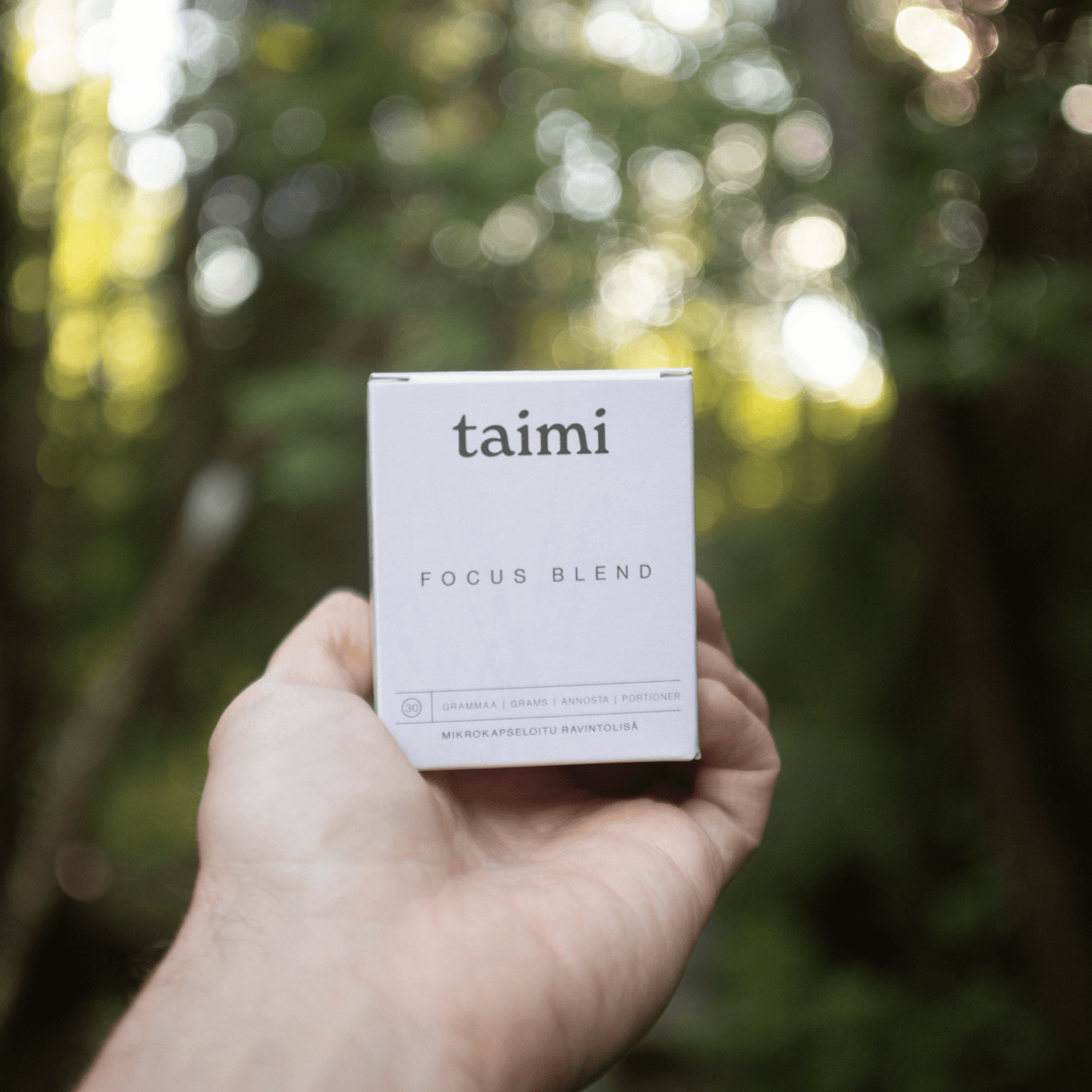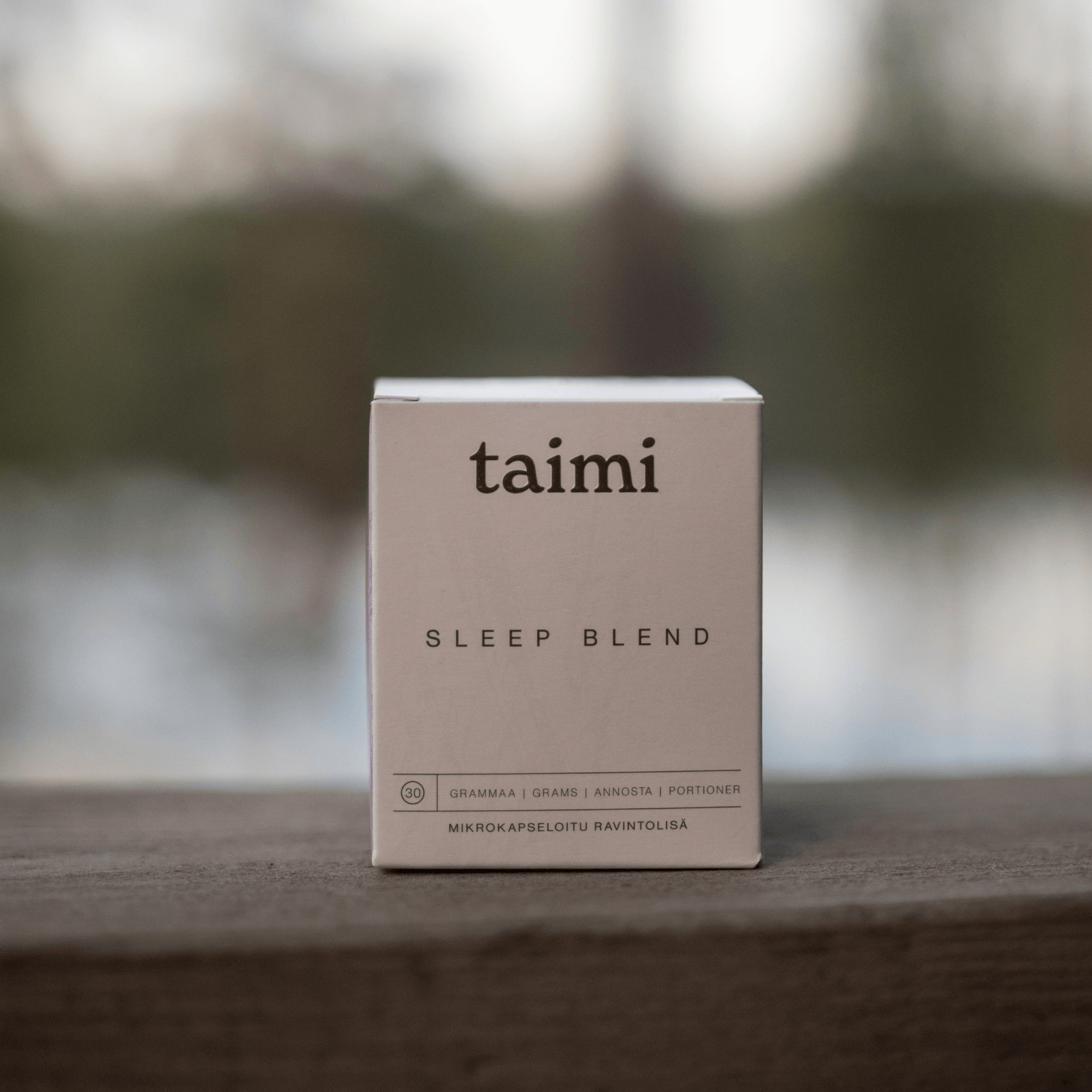Do you think you don't need vitamins from supplements? Most of us, unfortunately, need to and there are several reasons. Read below five reasons why you should use supplements and how you can use them to ensure that you get all the vital building blocks your body needs.
First of all, what does a supplement mean?
In addition to vitamins, nutritional supplements can contain minerals and trace elements, herbs or other plant-derived compounds, amino acids, enzymes and many other ingredients. Dietary supplements are available in many different forms, such as tablets, capsules, chewing gum and powders, as well as drinks and energy bars. Popular supplements include vitamin C and B12 , minerals such as calcium and iron, herbs such as echinacea and garlic, and glucosamine, probiotics and omega-3 oils.
Do I need supplements?
Humans do not directly need supplements, but they do need nutrients. Although we primarily want to get all the necessary nutrients from whole foods, this is not always possible. It may be that the food we eat does not contain enough of all essential nutrients. This is especially a problem with modern intensively produced food, as mechanized, intensive production that focuses on the quantity of the crop (not its quality) has decreased the amount of nutrients in the food.
On the other hand, many people today have various physical problems that prevent the absorption of food, so even if you eat a sufficient amount of nutrients, they will not be of much use if they are not absorbed from your intestines. Alcoholism and aging also have a weakening effect on the absorption of nutrients, and on the other hand, prolonged stress and physical training consume more of the nutrients stored in the body.

Supplements can in many cases be an important support for a healthy body and mind.
Why are vitamins and other nutrients important?
Vitamins and minerals are essential for your well-being. Your body needs a certain amount of each essential nutrient to function optimally.
Ideally, you get these nutrients from the food you eat. Unfortunately, many Finns do not eat in such a way that you get the right amount of these nutrients every day.
However, supplements are not meant to replace a healthy diet. You should focus on getting as much of the vitamins and minerals you need through food as possible. The function of supplements is to supplement a healthy diet and provide a targeted benefit.
For example, during the flu season, it is good to add supplements that strengthen immunity . If you have challenges with sleep quality , you can use supplements made for that purpose. On the other hand, in winter, when sunlight is scarce, it is wise to supplement the diet with vitamin D.
What types of supplements are available?
There are many types of supplements, such as:
- Traditional vitamins and minerals such as "letter vitamins"
- Other nutrients from food, such as omega-3 fatty acids
- Antioxidant compounds such as plant nutrients
- Amino acids and protein
- Enzymes
- Pre- and probiotics
- Metabolic compounds present in the body, for example melatonin.
- Herbs and adaptogens
- Medicinal mushrooms
The most common supplements are vitamin and mineral supplements. This is largely because vitamins and minerals are considered essential trace elements that the body needs to function optimally.
Do I need supplements?
Since your diet may lack important nutrients, the purpose of using supplements is to support your health in the best possible way. They can help meet daily recommendations or provide nutrients in a higher amount than you can get through food alone.
The following list is by no means complete. However, it does include some of the most common reasons why you may need vitamins and may benefit from taking supplements:
- Increased need and decreased absorption of certain nutrients with age.
- Lifestyle factors that contribute to nutrient depletion or increased need, such as pregnancy, limited sun exposure, smoking, etc.
- Environmental factors, such as the depletion of nutrients in the soil.
- Unhealthy eating habits that lack sufficient variety of food, especially vegetables and offal.
- A restrictive diet, such as a vegan or vegetarian diet.
- Eliminating certain foods or food groups due to allergies and/or sensitivities.
- Diseases, such as celiac disease or colitis, in which the body cannot absorb nutrients properly.
- An active eating disorder that restricts food intake due to weight loss or body image concerns.
- Taking certain medications that reduce absorption or take nutrients from your body.
Let's take a closer look at the top five reasons why you might need supplements.

The impoverishment of the soil caused by intensive farming has reduced the amount of nutrients also from a healthy diet.
5 reasons to use supplements
1. You eat a special diet
It's important to consider the nutrients you may be missing from your diet when you cut out certain food groups.
If you follow a vegan or vegetarian diet or have to exclude certain food groups due to allergies or intolerances, you are at greater risk of missing out on certain nutrients.
For example, vegans and vegetarians need to be especially careful that they get quality sources of vitamin B12 , iron, zinc and iodine.
2. You belong to an older population group
People over 50 have an increased need for calcium, vitamin D and vitamin B.
Vitamin D and calcium are especially important for postmenopausal women, who are at increased risk of bone loss due to hormonal changes. A daily calcium/D3 supplement can help minimize this risk.
In addition, older adults may have difficulty absorbing vitamins B9 and B12 from food, which can also lead to a deficiency. For this reason, it may be advisable to take a daily B vitamin supplement.

Elderly people have an increased risk of nutrient deficiencies, as their bodies do not absorb all necessary nutrients efficiently.
3. Your food lacks nutrients due to soil depletion
No matter what diet you follow, the food you eat is no longer as nutritious as it used to be.
Over the years, traditional agriculture has led to the fact that the land has been cultivated too much in the name of profit. Without proper crop rotation, the soil begins to lose nutrients, leading to nutrient depletion in our food chain.
Research shows that nutrients affected by soil depletion include protein, calcium, phosphorus, iron, riboflavin and vitamin C. Other nutrients that plants absorb from the soil and that can also be affected are magnesium, zinc, vitamin B6 and vitamin E.
Unfortunately, this large-scale problem requires a conscious change of attitude in agriculture. However, don't let that stop you from eating healthy and versatile.
4. You are pregnant or breastfeeding
The nutritional need for several nutrients increases during pregnancy and breastfeeding. During these times, it is important for mothers (to-be and new) to ensure that they meet their daily needs, as several nutrients are essential for the proper growth and development of the baby.
Therefore, the importance of vitamins during pregnancy - and also vitamins after childbirth - cannot be underestimated. The most important vitamins for expectant and new mothers are folate, iron, zinc, calcium, vitamin C, vitamin D and DHA.
Most women of childbearing age should consider a multivitamin that also contains folate , i.e. vitamin B9. Taking a prenatal vitamin containing folate during pregnancy or breastfeeding can help meet the increased need.
5) You exercise often
Athletes need a lot of energy and nutrients to stay in shape. When you exercise, your body uses up stored energy and nutrients.
It is vital to supplement these essential nutrients to maintain your energy levels and promote recovery after intense exercise.
People who exercise often and hard should actually eat more carefully and healthily, because their body is exposed to more stress. A high-quality diet and possibly the right supplements will help you recover and strengthen your body appropriately.
Summary
- You need essential nutrients every day to maintain good health, and supplements can certainly help.
- Supplements are not a substitute for a balanced diet that includes fruits, vegetables, protein, and healthy fats.
- An excellent source of nutrients is internal organs such as the liver, heart and kidneys.
- Nowadays, it is more difficult to get a sufficient amount of nutrients from whole foods, because the soil has become impoverished and thus the amount of nutrients has decreased even from healthy food.
- Lifestyle affects the absorption of nutrients. For example, smoking and heavy alcohol consumption weaken the absorption of vitamins.
- Vegans and vegetarians and people with eating disorders also have an increased risk of nutrient deficiencies.
- You can test the amount of supplements in your body using tests. This will give you accurate information on what you are lacking and how you can supplement your diet.
- Although supplements are beneficial, more is not always better!
Taimin's Blends contain high-quality nutrients in microencapsulated powder. They help you meet the intake of essential nutrients and support desired functions, such as improving the quality of sleep, strengthening the natural resistance, and enhancing cognition and protecting the brain.

